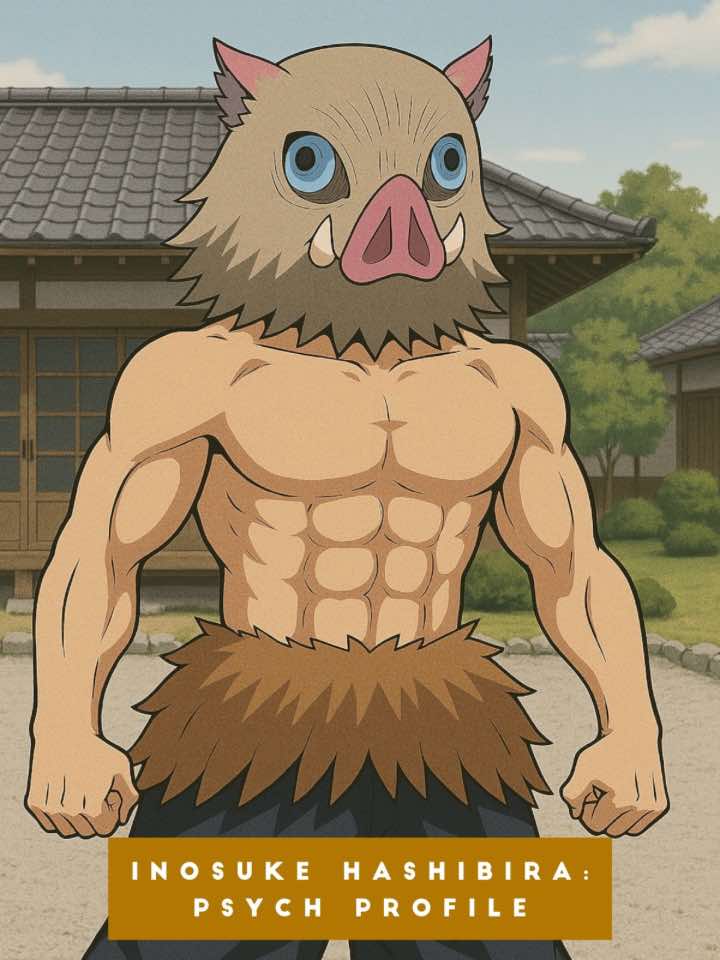What a boar: Inosuke Hashibira—a psychological profile
Raised by boars in the wilderness, Inosuke developed in an environment devoid of human language, structure, and interpersonal feedback. As such, his cognitive and emotional development deviated significantly from typical patterns. He exhibits an underdeveloped sense of social norms and interpersonal cues. For example, he frequently misinterprets or overreacts to benign social gestures, often defaulting to aggression or dominance behavior. This suggests a hypervigilant survival response, likely developed to cope with the unpredictability of his formative environment.
Despite these deficits, Inosuke demonstrates a remarkably adaptive intelligence. His physical coordination, pattern recognition in battle, and rapid acquisition of swordsmanship indicate high kinesthetic intelligence and procedural memory. These are skills cultivated through environmental feedback in the wild, where survival depends on immediate and intuitive learning.
Emotionally, Inosuke presents as both reactive and vulnerable. His bravado and competitive posturing are not signs of confidence, but of emotional compensation. He lacks the vocabulary and framework to express fear, shame, or affection in normative ways. Instead, he reverts to physical expression, shouting, or confrontation. This is consistent with a child raised in an environment that prioritized physical dominance over emotional nuance.
Inosuke Hashibira represents a case of extreme environmental deprivation followed by progressive social integration. His journey reflects the brain’s capacity to rewire itself through consistent emotional exposure and modeled behavior. He is a study in neuroplasticity, instinctual intelligence, and the transformative power of human connection.



